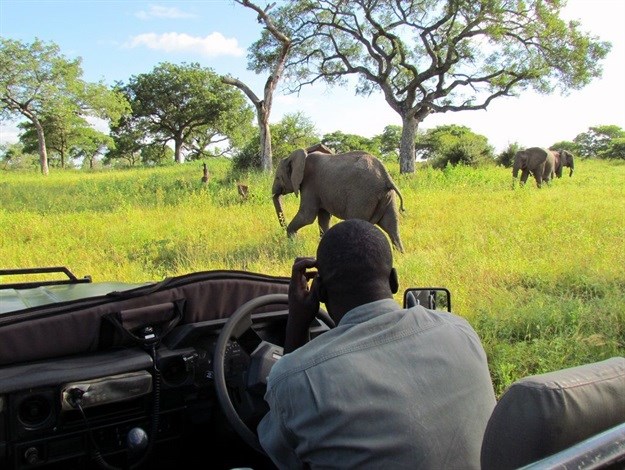
Top stories






More news
















Logistics & Transport
Uganda plans new rail link to Tanzania for mineral export boost










The study, titled Ending Wildlife Trafficking: Local communities as change agents, explored the challenges of illegal wildlife trafficking – in particular as it affects rhinos. The study also focused on the transnational criminal networks engaged in it, but the research findings and recommendations for community interventions to tackle the illegal wildlife economy are applicable to all forms of wildlife trafficking.
These local communities are in the periphery of basic services delivery and only a small number of conservation initiatives partner with or enrol local people in their work. Often the only benefits for these communities from wildlife economies are profits they can make from poaching.
Dr Annette Hübschle, lead author and senior researcher at UCT’s Global Risk Governance Programme, comments: “During our research we found that local community members felt that government, conservation authorities and non-governmental organisations (NGOs) valued the lives of wild animals more highly than those of rural black people.”
While the rhinos are protected by the South African National Defence Force, wildlife veterinarians are looking after their health and conservation authorities provide supplementary food and water to the rhinos – some of the communities living adjacent to them do not even have a permanent police presence, basic healthcare facilities, schools or shops.
“The rhino has its own doctor, its own policeman, its own helicopter, its own land and there are rangers to protect it. We don’t have these things. If the rhino goes extinct tomorrow, maybe we can finally get basic services,” says a local community member from the greater Kruger National Park.
The research uncovers that many local communities shield poachers and wildlife criminals from law enforcement agencies. It further describes the deep rifts and conflicts between actors in the conservation field – most notably between local communities, private and public conservation management authorities. By giving local communities a voice in this report, the research hopes to contribute to a deeper understanding of lived experiences, systematic exploitation and questionable assumptions of the dominant conservation regime in South Africa.
Since the latest escalation of rhino poaching, most conservation funding has been diverted to anti-poaching initiatives and the project administration costs of international NGOs and conservation authorities. The international community is focusing on a militarisation of anti-poaching initiatives, with calls for more helicopter gunships, drone protection and boots on the ground. This has led to unintended consequences that have impeded community-orientated conservation initiatives and broad-based economic transformation.
The study highlights that investing solely in military-type approaches does not disrupt the supply chain or demand for illicit wildlife products. Furthermore, the current rhino control paradigm and associated conservation policies are aimed at controlling poachers and advancing security, but are hindering pathways for community empowerment.
There are however limits to what conservation authorities can do to uplift communities that live near national parks. Hübschle highlights the need to “explore other forms of rural employment, resource sharing and income generation beyond hunting, anti-poaching and tourism”.
Needs and services of conservation interventions should be provided through community empowerment projects and teach community members the skills needed to build, develop and maintain their own projects. Furthermore, women should be involved in mediating positive conservation outcomes.
“Women command considerable power and influence in the communities in question. In light of the patriarchal structure of many rural African communities, this suggestion may appear counter-intuitive. However, there are countless examples that demonstrate that women can exert a strong influence on conservation outcomes,” Hübschle explains.
The focus of the study is not on stopping poaching or catching poachers. The aim is to change the incentive structures for members of local communities by participating in legal economies rather than illegal wildlife. Some of the case studies in the study illustrate how former poachers and wildlife traffickers have turned into wildlife guardians.
Hübschle adds: “In such instances, we have documented examples where poaching numbers were lower than in other protected areas where local communities are excluded from beneficiation, ownership and management.”